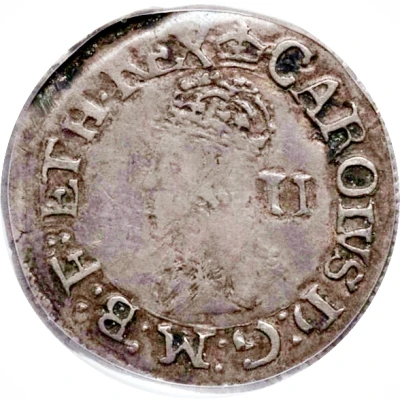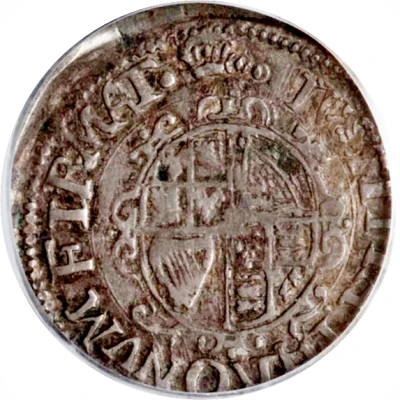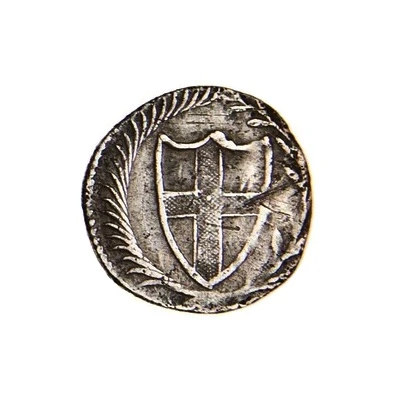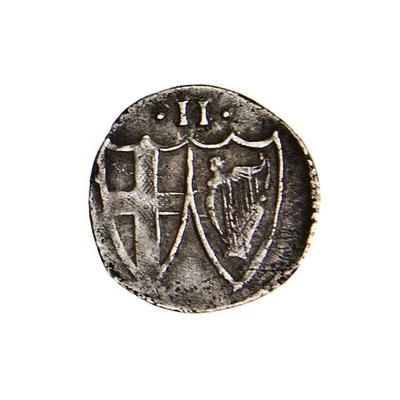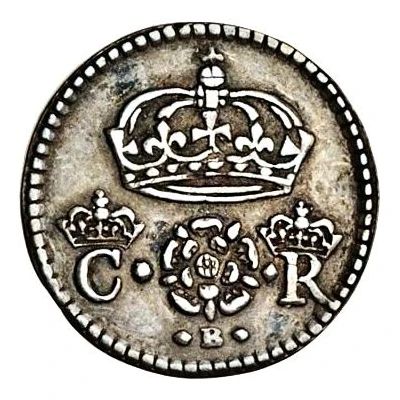
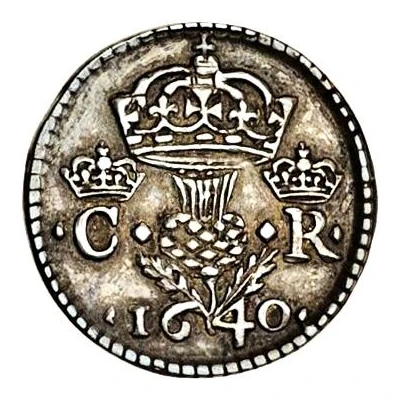

© Spink and Son
½ Groat - Charles I Nicholas Briot's Pattern
1640 year| Silver | - | - |
| Issuer | England (United Kingdom, British Overseas Territories and Crown Dependencies) |
|---|---|
| King | Charles I (1625-1649) |
| Type | Pattern |
| Year | 1640 |
| Value | 2 Pence (1⁄120) |
| Currency | Pound sterling (1158-1970) |
| Composition | Silver |
| Shape | Round |
| Orientation | Coin alignment ↑↓ |
| Demonetized | Yes |
| Updated | 2024-10-08 |
| Numista | N#302675 |
|---|---|
| Rarity index | 97% |
Reverse
Large crown over thistle dividing crowned monogram, date below.
Script: Latin
Lettering:
· C · · R ·
· 1640 ·
Edge
Plain
Comment
House of Stuart (1603-49), Charles I (1625-49), silver pattern halfgroat by Nicholas Briot, also struck in copper.A pivotal year in the reign, Charles I was losing against the Scottish. The Battle of Newburn resulted in Newcastle being taken by the Scots and Charles agreed to pay the invaders along the lines of Danegeld. To raise the necessary funds, Charles had to call the Long Parliament, thus settin gi nmotion a process that would lead to the outbreak of the English Civil War two years later.
Interesting fact
One interesting fact about the Pattern ½ Groat - Charles I (Nicholas Briot's Pattern) 1640 from England is that it was designed by Nicholas Briot, a French engraver who was appointed as the Royal Engraver by King Charles I in 1635. Briot's design for the coin featured a portrait of the king on one side and a shield with the royal arms on the other, and it was intended to be used as a prototype for a new coinage system that was never implemented due to the political and economic turmoil of the time. Despite its historical significance, the coin is relatively rare and highly sought after by collectors, with only a few examples known to exist in mint condition.
